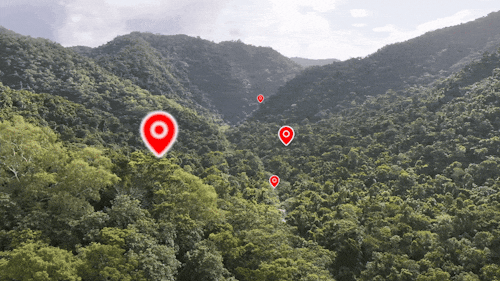|
|
|
|
At the federal election in May, Pauline Hansen’s One Nation recorded a primary vote of 6.4%. Five months on, polling now shows it sitting between 11% and 14%. In the latest Resolve poll, One Nation was at 12% on first preferences, edging out the Greens at 11%.
What’s behind the sudden surge in support for One Nation? Some of it is discontent with the Liberal-National Coalition, particularly in the wake of its crushing electoral defeat. But Shaun Wilson’s research also reveals deep pessimism among some voters about the path Australia is on, and how the future might unfold. Immigration is a particularly incendiary issue, as shown by the recent protest marches across the country.
Housing is another hot-button issue, particularly for younger voters. So whether One Nation’s support will continue to build depends ”“as much on whether Labor can deliver on such a contract as it does on the Coalition’s search for a so-far elusive formula for rebuilding a majority electorate on the right”“, Wilson says.
On a completely different topic, this week we were delighted to hear our interactive beach safety quiz has been shortlisted for a prestigious Walkley Award, in the Explanatory Journalism category. With the weather (slowly) warming up, it’s a good time to check you know how to spot a rip.
|

|
Amanda Dunn
Politics + Society Editor
|
|

Shaun Wilson, Macquarie University
With Labor re-elected with a thumping majority, voters at the conservative end of the Coalition are drifting away, spurred by anxieties about immigration.
|
Best reads this week
|

Gwyn McClelland, University of New England
Some 80 years ago, Nagasaki residents faced the seemingly impossible task of rebuilding a devastated city. A similar challenge faces those in Gaza today.
|

Shannon Brincat, University of the Sunshine Coast
The five journalists, including two Australians, died while doing their jobs. Despite half a century of evidence and lobbying, justice remains elusive.
|
 Samuel Cornell, The Conversation Digital Storytelling Team Social media tourism is encouraging risky behaviour and the death toll is mounting. |
|
|

Prudence Gibson, UNSW Sydney
In his rollicking scientific true-crime book, The Butterfly Thief, Walter Marsh delves into the dark side of museum collection histories – and one bizarre heist.
|

Geetanjali (Tanji) Lamba, Monash University; Kane Vellar, Charles Darwin University; Paul Komesaroff, Monash University
The Northern Territory is unique for so many reasons. That’s why voluntary assisted dying in the NT can’t be imported from elsewhere.
|

Alex Beattie, Te Herenga Waka — Victoria University of Wellington
Social media bans suggest a resurgence of conservative values in our digital lives. But at what cost to young people’s autonomy, creativity and expression?
|
TC Weekly podcast
|

Michelle Grattan, University of Canberra
The former Liberal strategist turned pollster says the Coalition has become ‘catastrophically uncompetitive’ with women and younger voters.
|

Gemma Ware, The Conversation
Water scientist Patrick Byrne tells The Conversation Weekly podcast what testing rivers can reveal about the biggest, often hidden, sources of PFAS pollution.
|
Our most-read article this week
|

Gilles E. Gignac, The University of Western Australia
Perhaps it’s time we stopped treating midlife as a countdown and started recognising it as a peak.
|
In case you missed this week's big stories
|
-
Lester Munson, University of Sydney
Trump’s foreign policy approach is fast-paced and intensely personal. The true test of its success won’t be Gaza, but geostrategic conflicts with China and Russia.
-
Martin Kear, University of Sydney
Many clans and gangs are taking advantage of a security vacuum in Gaza to reassert their authority – some backed by Israel.
-
Sarah Perkins-Kirkpatrick, Australian National University; Andrew King, The University of Melbourne; Nicola Maher, Australian National University; Wesley Morgan, UNSW Sydney
The results challenge claims that the climate risks posed by an individual fossil fuel project are negligible or cannot be quantified.
-
Michelle Grattan, University of Canberra
In the clandestine race for Labor’s next leader, the question is will youth or expereince shine through?
-
Michelle Grattan, University of Canberra
Tony Burke on Thursday will outline new powers to combat money laundering, terrorism financing and crime risks associated with cryptocurrency and Crypto ATMs.
-
Natalie Peng, The University of Queensland
The revised plan still leaves gaps – especially for people earning $45,000 or less a year – that will quietly chip away at its fairness over time.
-
Rhys Knapton-Lonsdale, Murdoch University; Paul Taucher, Murdoch University
Former SAS soldier Oliver Schulz has pleaded not guilty to the war crime of murder. The case may raise previously untested laws both in Australia and globally.
-
James Meese, RMIT University; Amber Marshall, Griffith University; Holly Randell-Moon, Charles Sturt University; Jenny Kennedy, RMIT University; Rowan Wilken, RMIT University
Regional towns such as Dubbo as well as some suburbs on the outskirts of Melbourne have worse reception than more remote areas.
-
Rafiqa Qurrata A'yun, The University of Melbourne; Tim Lindsey, The University of Melbourne
Nearly 1,000 suspects have been named in the riots, including high school students. Police have seized books they claim are subversive to justify the arrests.
-
Luke Hartigan, University of Sydney
Surging demand from China, Russia, and mum and dad investors shows no signs of abating.
|
|
|
|
|
Mobile black spots
“I live in the Yarra Valley, 50 km east of the Melbourne CBD and have very limited phone and internet options. We live in a small pocket where we can only get 4G mobile or slow fixed wireless NBN according to the various coverage maps. With the massive wind storm a few years ago in the Dandenongs, we were totally cut off. No power, no internet, no mobile phone makes it extremely dangerous during an emergency and this will only get worse with climate change.”
Peter Veeken
Atrocities of war
“The level of destruction in Gaza is mind boggling! This in itself just numbs one's sense of the atrocities of war. In today’s world, we prove again we have not moved beyond this 'levelling of a city' approach. Killer drones, AI and other such weapons have depersonalised armed conflict.”
Robyn Guy
Charging road users
“Various governments are discussing the introduction of road user charges. Rather than targeting EVs, the extent of any road user charge should be based on multiple factors, including vehicle weight, how much pollution the vehicle produces, and the risk of injury to passengers and pedestrians. Heavy, polluting vehicles with poor safety ratings would pay the highest charge, while lighter, low pollution vehicles with good safety ratings would pay the lowest charge.”
John Upham, Brisbane 
We'd love to hear from you. You can email us with your thoughts on our stories and each day we'll publish an edited selection.
|
| |
|
|
|
University of Tasmania
Tasmania, Australia
•
Part Time
|

|
|
The Conversation AU/NZ
Melbourne Victoria, Australia
•
Full Time
|

|
|
|
|
Featured Events, Courses & Podcasts
|
View all
|
|
22 October 2025
•
Carlton
|

|
24 October 2025
•
Melbourne
|

|
11 - 12 November 2025
•
Parkville
|

|
23 October 2025
•
Melbourne
|

|
|
|
|
| |
| |
| |
| |
| |
|
|
|
|
|
|
|